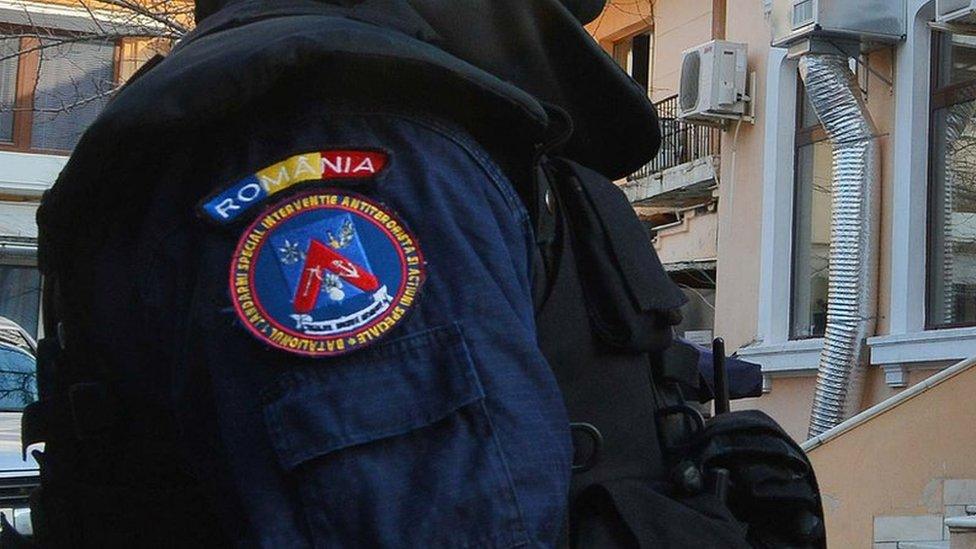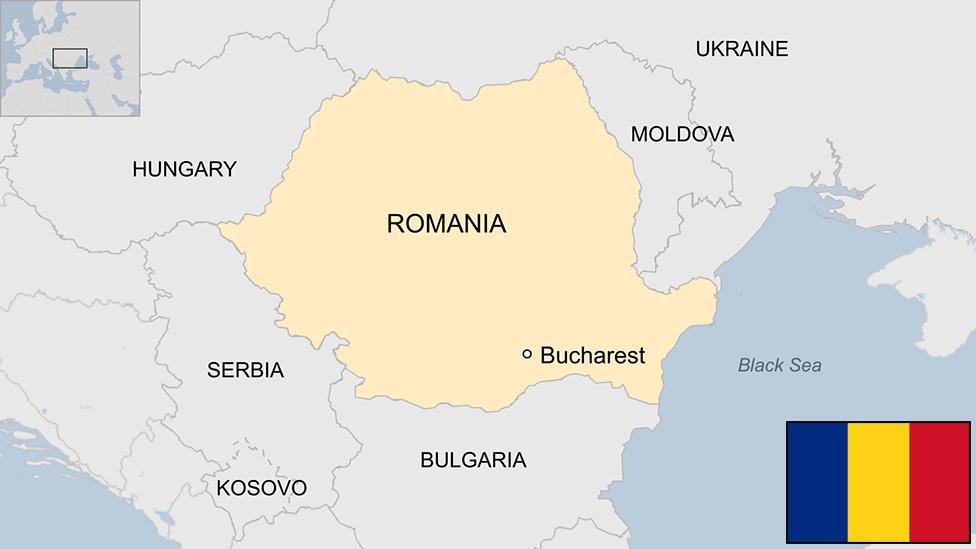German teenagers 'held like slaves' in Romania
- Published

Authorities have reportedly detained several employees of the centre
German children brought to Romania under a programme to help troubled youths were instead held in "slavery-like conditions", prosecutors allege.
Eight suspects, including a German couple, are suspected of trafficking and abusing the minors through the German state-funded Projekt Maramures.
Romanian prosecutors allege that the minors were treated in "humiliating and degrading" ways.
German officials said they were in contact with Romanian authorities.
Projekt Maramures' website says its aim is to "rehabilitate" troubled youths.
It says it helps minors suffering from behavioural disorders or drug addiction, offering recreational activities and psychological assistance at a farm in northern Romania's Maramures region.
But Romanian investigators say the youths - aged between 12 and 18 - were instead treated like slaves, beaten and forced to do "exhausting physical labour".

You may also be interested in

They were deprived of food, not allowed to take prescription medication, had no contact with the outside world and were subjected to "harsh and brutal methods of so-called re-education", they said in a statement.
Prosecutors accused the German couple and other suspects of creating the programme, licensed by Romania's labour ministry, for human trafficking "under the guise of carrying out legitimate educational services".
A spokeswoman for Germany's foreign ministry confirmed on Wednesday that German diplomats in Romania had been in contact with the authorities there to offer consular assistance.
"This is a project that has existed for nearly 20 years, and in the last 20 years no problems such as those now being reported in the media have become known to us," the spokeswoman told reporters, according to the AP news agency.
Judicial sources told AFP news agency that authorities had detained several employees at the centre.
The local child protection agency told AFP that 20 children were at the centre when prosecutors searched it this week. Four were placed with the child protection agency, waiting to be picked up by parents of guardians, but it remained unclear where the other 16 were.
Prosecutors have not said exactly how many children are believed to have been affected by the alleged abuse, which is suspected to have begun in 2014.
Projekt Maramures did not immediately respond to requests from the BBC for comment.
- Published18 December 2024
